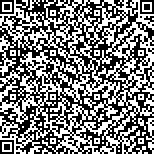古祺,李学,吴少璞,等.重复经颅磁刺激联合有氧运动训练对早期帕金森病患者认知功能的影响[J].中华物理医学与康复杂志,2025,47(2):112-116
扫码阅读全文

|
| 重复经颅磁刺激联合有氧运动训练对早期帕金森病患者认知功能的影响 |
|
| |
| DOI:10.3760/cma.j.cn421666-20240907-00721 |
| 中文关键词: 帕金森病 重复经颅磁刺激 运动训练 认知功能 |
| 英文关键词: Parkinson′s disease Transcranial magnetic stimulation Exercise training Cognitive functioning |
| 基金项目: |
|
| 摘要点击次数: 2505 |
| 全文下载次数: 2204 |
| 中文摘要: |
| 目的 观察重复经颅磁刺激(rTMS)联合有氧运动训练对早期PD患者认知功能的影响。 方法 采用随机数字表法将120例早期PD患者分为观察组及对照组,每组60例。2组患者均给予常规药物治疗及中等强度有氧运动训练,观察组患者在此基础上辅以高频rTMS治疗。于治疗前、治疗3个月后分别采用蒙特利尔认知评估量表(MoCA)、统一帕金森病评分量表第三部分(UPDRS-Ⅲ)对2组患者认知功能、运动功能进行评定,分别采用汉密尔顿焦虑量表(HAMA)及抑郁量表(HAMD)对2组患者负面情绪进行评定,同时于上述时间点对2组患者进行听觉事件相关电位检测,具体分析指标包括P300潜伏期及波幅。 结果 治疗后2组患者MoCA、UPDRS-Ⅲ、HAMA、HAMD评分、P300波幅及潜伏期均较治疗前明显改善(P<0.05),并且治疗后观察组患者MoCA部分指标评分(包括视空间和执行功能、注意力、延迟回忆评分及总分)、HAMA评分[(10.55±3.11)分]、HAMD评分[(9.78±4.10)分]及P300波幅[(11.29±2.21) μV]、潜伏期[(384.75±48.26) ms]亦显著优于对照组水平(P<0.05);通过相关性分析发现,治疗前、后观察组患者UPDRS-Ⅲ评分与MoCA量表视空间和执行功能评分具有负相关性(P<0.05),HAMA评分与注意力评分具有负相关性(P<0.05),HAMD评分与延迟回忆评分具有负相关性(P<0.05)。 结论 有氧运动训练联合rTMS能显著改善早期PD患者的认知功能及运动功能,其疗效优于单一有氧运动训练,该联合疗法值得在早期PD患者中推广 、应用。 |
| 英文摘要: |
| Objective To observe any effect of combining transcranial magnetic stimulation (rTMS) with aerobic exercise on the cognitive functioning of early stage Parkinson′s disease (PD) patients. Methods A total of 120 PD patients in the early stage were randomly divided into an observation group and a control group, each of 60. Both groups received conventional drug treatment and moderate-intensity aerobic exercise training, while the observation group was additionally provided with high-frequency rTMS treatment. Before and after 3 months of the treatments, everyone′s cognitive and motor functioning was evaluated using the Montreal Cognitive Assessment Scale (MoCA) and the third part of the Unified Parkinson′s Disease Rating Scale (UPDRS-Ⅲ), respectively. Negative emotions were evaluated using the Hamilton Anxiety Scale (HAMA) and the Hamilton Depression Scale (HAMD). Auditory event-related potentials were also detected, and the latency and amplitude of P300 were analyzed. Results The average MoCA, UPDRS-Ⅲ, HAMA and HAMD scores, as well as the amplitude and latency of P300 had improved significantly in both groups after the treatment. At that point the observation group′s performance was significantly better than that of the control group in terms of the MoCA′s visuospatial and executive function, attention and delayed recall indicators, and also total score. The observation group′s average HAMA score (10.55±3.11), HAMD score (9.78±4.10), the P300 amplitude [(11.29±2.21)μV] and latency [(384.75±48.26)ms] were also significantly better. The UPDRS-Ⅲ scores were negatively correlated with the visuospatial and executive function scores of the MoCA scale in the observation group before and after treatment, while the average HAMA score was negatively correlated with the attention and delayed recall scores. Conclusions Supplementing aerobic exercise with rTMS can significantly improve the cognition and motor functioning of early stage PD patients. The combination is more effective than aerobic exercise alone. Such combined therapy is worthy of popularization and clinical application. |
|
查看全文
查看/发表评论 下载PDF阅读器 |
| 关闭 |
|
|
|